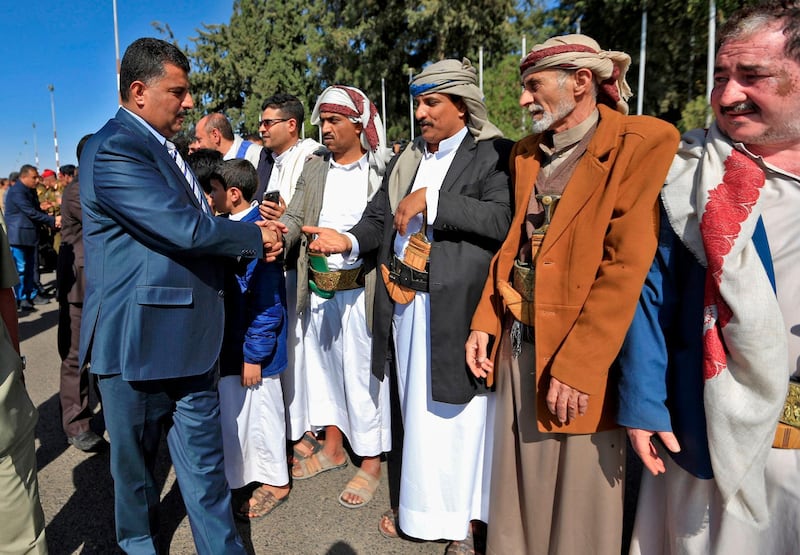Yemen’s internationally recognised government vows to include the Houthis in country’s political future if they disarm and cut ties with Iran, with a ceasefire in Hodeidah from Tuesday providing the first test of the rebels' intentions.
A ceasefire went into effect at midnight on Monday, with early reports suggesting sporadic clashes continued in Hodeidah into Tuesday morning.
"The Houthis will be a part of Yemen's political framework," Foreign Minister Khalid Al Yamani told The National following the conclusion of peace negotiations in Sweden last week.
"We will live together under one roof, even though we may have political or religious differences, but Yemen is for all."
However, the rebels must give up their heavy weaponry and cut ties with Iran and its proxies before the government considers including them in the cabinet, Mr Al Yamani said.
“Achieving peace in Yemen will also be beneficial for the Houthis.”
The UN-led negotiations in the Swedish village of Rimbo produced agreements on a prisoner exchange, the ceasefire in Hodeidah — the main entry point for desperately needed food and aid — and for talks on a ceasefire in Taez.
A Yemeni official, who asked not to be identified, told The National that the government was open to giving the Houthis any position in the cabinet.
“If a Houthi representative wants to become a prime minister then we will accept, but on one condition — they must hand over their heavy weapons,” the official said.
________________
Read more:
[ Yemen peace drive must maintain its momentum ]
[ Anwar Gargash: Hodeidah ceasefire is 'important first step' to end the Yemen conflict ]
________________
Rana Ghanem, a member of the government delegation at the Sweden talks, said peace would ultimately prevail.
"No matter how much the Yemeni people have endured, they will not accept going back 200 years, neither the rule of an imam nor following a religious reference that will control the people," Ms Ghanem told The National.
Yemen is a civil, democratic country, a republic that refuses to go back to monarchy, she said.
Elizabeth Dickinson, senior analyst for the Arabian Peninsula at the International Crisis Group, said one positive in the conflict was that all sides recognised that, at the end of the day, all Yemeni parties involved had a stake and a role in the country's future.
"Those who will be best at inter-Yemeni reconciliation are the Yemenis themselves — this has been the case throughout history and will remain so," Ms Dickinson told The National.
Peace in the balance
The talks in Sweden sidestepped discussions on a political transition, and focused instead on a prisoner swap, securing UN administration of the strategic Red Sea port of Hodeidah, and reopening the airport in Sanaa, the rebel-held capital.
“In the immediate future, the key word is vigilance. We have to remain vigilant to make sure that the progress made in Sweden becomes tangible de-escalation on the ground,” Ms Dickinson said.
“It's going to be tough, difficult work — and there will be setbacks. But now is the time for all actors with a stake in Yemen to focus on implementing the agreements from Stockholm.”
If the warring parties abide by what was agreed in Sweden, it could form the foundation of a peace process that slowly rebuilds trust between them. If not, it could take a long time to get them back to the negotiating table.
“A major risk at the moment is that Yemen's friends across the world see the optimism of Sweden and sit back to relax. We can't afford to do that and let what hope we have now built collapse,” Ms Dickinson said.
The UN has said another round of talks will be held in early 2019 to find agreement on a framework for political negotiations and a transitional governing body.
However, the government has warned that they will not participate in another round of discussions if the Stockholm agreements are not implemented.
Diplomats at the UN say efforts are on to draft a Security Council resolution to back up the agreements, which will help to ensure they are honoured while the peace effort moves on to establishing a wider truce and the political framework to end more than four years of conflict.





